
Governing through crisis. Conflict, crises and the politics of cyberspace
You can find our program here and you can already register for the conference here. The entire conference is free to attend via livestream.
Keynotes

Herb Lin
Senior research scholar for cyber policy and security at the Center for International Security and Cooperation and Hank J. Holland Fellow in Cyber Policy and Security at the Hoover Institution, both at Stanford University.
Link to Profile

Frédérick Douzet
Professor of Geopolitics at the French Institute of Geopolitics (University of Paris 8) and director of the Center Geopolitics of the Datasphere (GEODE).
Link to Profile

Jon Lindsay
Associate Professor at the School of Cybersecurity and Privacy and Sam Nunn School of International Affairs at the Georgia Institute of Technology (Georgia Tech).
Link to Profile
Livestream Archive
This conference was live-streamed via YouTube:
2021 Conference Panels (exact program times can be found here)
International Law and Cyberspace: New Conundrums
- "State cyber operations, hackbacks and the right of hot pursuit in international law", by Jack Kenny
- "Disinformation-as-a-service: the legal landscape of dark PR", by James Shires, Ronan Ó Fathaigh, Judith Möller and Frederik Zuiderveen Borgesius
- "Armed Attack in Cyberspace: Clarifying and Assessing When Cyber-Attacks Trigger the Netherlands' Right of Self-Defence", by Ferry Oorsprong, Paul Ducheine and Peter Pijpers
- "Rethinking the underlying gray zones in the international law applicable to cyber-operations: a data-driven approach", by Maroi Kouka
Great Power Perspectives: Sovereignty, Norms and Attribution
- "Great Power Narratives on the Crisis of Cyber Norm Building: Understanding Legitimization Strategies and Dilemmas", by Mischa Hansel
- "A Quest for Digital Sovereignty in Internet Governance? Observing the Role of Chinese Stakeholders in ICANN", by Riccardo Nanni
- "Decoding Russia's Quasi-Attribution of Cyber Attacks", by Oleg Shakirov
- "Public Attribution as Subject and Source of Cyber Norms", by Heajune Lee
The Covid Pandemic: Lessons and Challenges for Cyber Stability
- "A 'New' Digital Divide in Times of Crisis: The Open Internet During the COVID-19 Pandemic", by Pedro Henrique Ramos
- "Can lessons be learnt from the governance of the coronavirus pandemic to help preparations for future cyber crises?", by Gareth Mott and Jason Nurse
- "Religious based Civil Society Organisations (CSOs) and Cyber Norms; their take on the disinfodemic during the COVID-19 pandemic in Indonesia", by Miftahul Ulum
- "Understanding cyber operations against pandemic response by authoritarian states", by JD Work
European Cybersecurity: Redefining Sovereignty
- "Risk vs. threat-based cybersecurity: the case of the EU", by Sarah Backman
- "European Digital Sovereignty: An Analysis of Authority Delegation", Cosmina Moghior
- "A genealogy of EU cyber security governance: Redefining the Role of the Single Market", by Tobias Liebetrau
Cyber Arms Control: Incentives and Challenges
- "Explaining the Diffusion of Military Cyber Organizations", by Max Smeets
- "The Political Economy of Cyber Knowledge Provision", by Myriam Dunn Cavelty, Florian J. Egloff, Miguel A. Gomez, Lennart Maschmeyer and Max Smeets
- "Offensive Cyber Operations & the Market Incentives for Contracting", by Taylor Grossman
Emerging Cyber Orders: Nations, Regions, and Peripheries
- "Cyber norms and cyber peripheries - can the process of creating cybernorms be one of inequality production?", by Bernardo Beiriz
- "The future of the governance of cybersecurity in Spain: A Delphi forecasting study", by Cristina Del-Real and Antonio Díaz-Fernández
- "China's Use of Rhetorical Adaptation in Development of a Global Cyber Order: a case study of the norm of the protection of the public core of the internet", by Courtney J. Fung
- "Cyber Governance in Africa: A Crossroads of Sovereignty, Politics and Cooperation", by Nnenna Ifeanyi-Ajufo
Virtual Crises: Managing Breakdowns
- "Imagining crises: cyber-diplomacy and the lessons from outer space", by André Barrinha and Arindrajit Basu
- "An ideal in crisis: Critiquing the global politics of internet freedom rankings", by Mariëlle Wijermars and Tetyana Lokot
- "Breakdowns, Incidents and the Continuity of Crises: An infrastructure approach to the governance of cybersecurity", by Louise Marie Hurel
Call for Papers | Governing through crisis. Conflict, crises and the politics of cyberspace.
The Covid-19 pandemic has both stopped the world in its tracks as well as accelerated its pace digitally. As the world moved its daily life and work online to deal with the crisis, it also opened itself up to new cyber crises. The vulnerable health care sector was exposed to criminal and state attacks, vaccine manufacturers became subject to IP theft and espionage, and disinformation about Covid-19 muddied the national and international debate about the nature of the crisis and how to deal with it. The new digital ‘normal’ kept the world running, but also vastly increased the attack surface for malicious cyber actors. While some were trying to govern themselves through the crisis, others were using the crisis as a governance mechanism. ‘Never waste a good crisis’, comes in benign and in malicious shapes.
In cyberspace, crisis comes in many shapes and forms. Mis- and disinformation has created a crisis of trust in information and authority in many societies. For some states this is a governance problem, while for others it is an instrument of governance. New cyber operations keep shifting the goal posts on what is and is not acceptable behavior in cyberspace. Recent operations such as SolarWinds and the Microsoft Exchange hacks put pressure on the demarcation between cyber espionage and (military) cyber operations. Conceptual clarity is still very much subject to debate, with some analytical categories facing a crisis of their own. The field of UN cyber diplomacy has been governing itself through the crisis of the failure to reach consensus in the 2017 UN GGE by multiplying its processes. There is now an ongoing UN GGE, an OEWG process that reached consensus, a new OEWG round 2021-2025, a committee of experts to review the possibility of a UN cybercrime treaty and a proposal for a cyber Programme of Action (PoA) that is gaining support. All against a background of mounting geopolitical tensions and increased state cyber activity.
The relation between crisis and governance is inherently double faced. Crisis management is about preparedness, capacity and capacity building, resilience and more generally combining accurate threat and risk assessment with strategy, policy and resources. But crisis is also a method of governance: escalation can be a conscious political strategic choice, disinformation a policy tool and political and diplomatic fragmentation can be a positive outcome depending on where you stand and what your interests are. Crisis can fragment and can unite, can be a centrifugal or a centripetal force.
In 2021, we want to place the conversation about cyber norms in the perspective of crises. How well equipped are the governance mechanisms and diplomatic processes that have been put into place to deal with crisis? What are the effects of a global crisis like Covid-19 on state behaviour(s), diplomatic behaviour and international cooperation in cyberspace? What strategies do states – and other actors – develop to deal with crises? How do states use crisis, or the opportunities shaped by crises, to further their own interests? Why do some states escalate and other de-escalate?
The current global health crisis inspired this theme, but this Call for Papers is not limited to that crisis alone. For the annual academic conference of The Hague Program for Cyber Norms we are interested in all papers that have an interesting take on the theme of international crisis, conflict, and the politics of cyberspace. As before, we aim to bring together scholars from a diverse range of disciplines including – but not limited to – international relations, international law, economics, political economy, security studies, political sociology, philosophy, political science, science and technology studies and engineering. The key to understanding the development of norms in cyberspace lies in bringing together the various disciplines that relate to the theme in a broad sense. This call for papers is therefore open to extended abstracts from a wide range of academic disciplines.
The conference is the fourth in an annual series organised by The Hague Program for Cyber Norms which has become a key multidisciplinary venue for peer-reviewed research in the study of cyber security and international stability. Take a look at the previous editions of this conference in 2018, 2019 and 2020.
We welcome extended abstracts of maximum 800 words on questions related to international cyber security and cyber norms. We explicitly welcome contributions from early career scholars. The conference will take place in The Hague on 9 to 11 November 2021. A best paper award will be awarded.
Accepted contributors are eligible for funding for travel and lodging.
We are planning to organize a hybrid conference this year and we hope to be able to welcome accepted contributors who are able and willing to travel in The Hague this November. If this is not the case for whatever reason, online participation will also be possible.
How to submit your abstract
Abstracts can be submitted via email to conference@thehaguecybernorms.nl
Please make sure your abstract submission meets the following requirements*:
- 600-800 words
- Please mention: name and current affiliation (if applicable)
- Format: .doc or .pdf
*If your abstract does not follow these requirements, it will not be taken into consideration.
Important dates
- 31 May 2021: Submission of extended abstracts
- 16 June 2021: Notification of acceptance
- 30 September 2021: Submission of full draft paper (max. 6000 words excl. footnotes and literature - for references, please use Chicago Manual of Style (preferred citation format being author-date)
- 31 October 2021: Feedback by review committee
- 9-11 November 2021: Conference
Stay updated on our conference. Make sure you are signed up to our mailing list or follow us on Twitter.
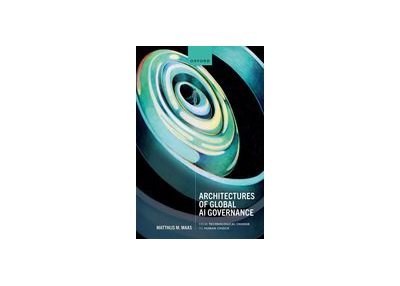
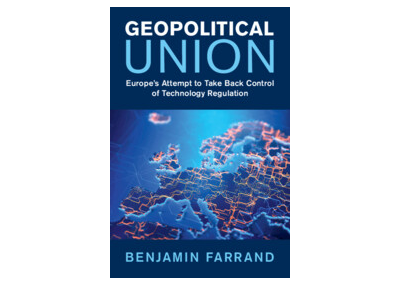
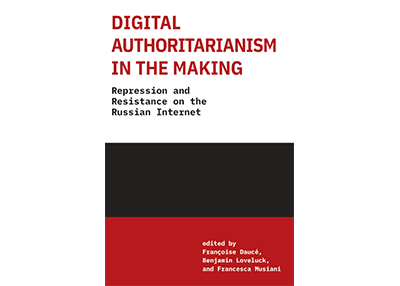
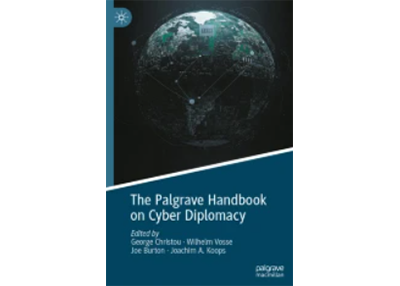
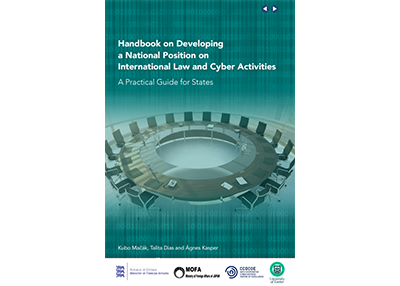
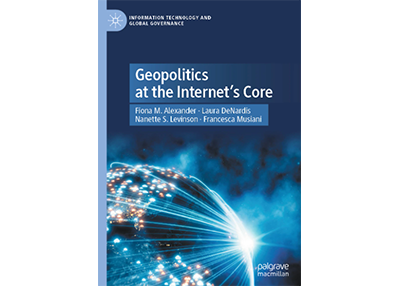
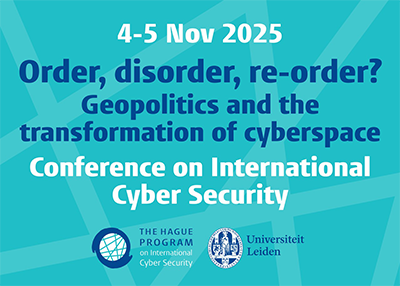
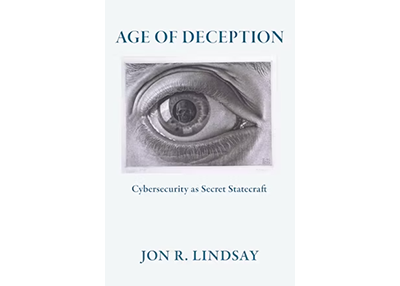
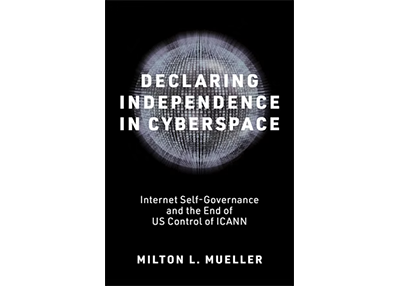















































.png)
















